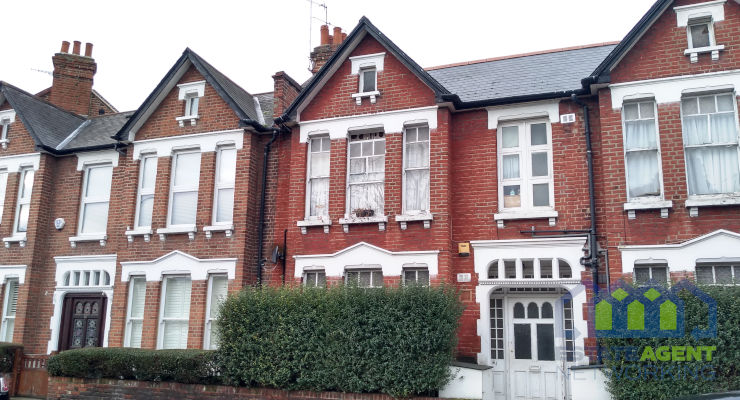BREXIT VOTING CITIES LEADING UK PROPERTY MARKET CONFIDENCE, ACCORDING TO NETANAGENT.COM
September 26, 2018
Key pro-Leave areas like Hull, Bradford and Stoke-on-Trent are showing the most confidence in property market, according to stats from comparison site NetAnAgent.com
Recent stats suggest some of the most ardent Leave voting areas of the UK are still amongst the most confident in the property market – when it comes to selling homes.
Data from agent comparison website NetAnAgent.com looked at how many website enquiries (those who register their details on the platform) went to valuation with estate agents, helping to show the level of confidence sellers across the nation are currently feeling.
Hull, which returned a leave result of 65%, showed 28% above the national average of properties going to valuation through the NetAnAgent.com. Similarly Bradford (54% leave) was 20% up on the average and Stoke on Trent (69% leave) 4% were more likely to go to valuation.
At the other end of the scale Bristol, Remain stronghold who voted 62% to stay in the EU was at the bottom of NetAnAgent.com‘s confidence index with 44% less likely to list than the national average. Similarly Manchester (60% remain) was down 12% and Brighton (69% remain) down 4% on the national listing index average.
Although London can often seen as something of a property microcosm figures on the capital’s market shows it is holding up well around average with homeowners 4% were more likely to go to valuation.
NetAnAgent CEO, Alex Thorpe, said:
“It interesting to see that the way different areas voted in the EU referendum does seem to have had an impact on how they view the state of the UK property market with a good number of ‘Leave’ areas showing greater levels of confidence than those who voted Remain. It suggests that Remainers are more pessimistic about the prospect of putting there house on the market, measured by how many of them are going to valuation through the NetAnAgent site, a key early indicator of confidence in the market.
Senstive and sentiment driven
NetAnAgent figures also show how online agents may have helped to influence the cost of selling your home with fees from traditional agents down an average of 15% percent across the UK compared to the same period in 2016 with some areas seeing a drop of up to 40%. For example NetAnAgent.com data shows that in Leeds the average agent fee has dropped from 1.45% in 2016 to 1.18% in 2018, a proportional decrease of 18.6% meaning sellers would now pay £2439.65 in fees compared to £2997.88 in 2016*. Across the UK this means that sellers can now expect to save on £307 on their house sale through a traditional local agent.
Conversely online fees would appeared to have increased on average 27% in the past two years from £587.25 to £804.75 as they seek to improve service level and offer more to the vendors.
NetAnAgent CEO, Alex Thorpe, commented:
“We have certainly seem something of a closing of the gap of agents’ fees over the last few year as traditional agents have lowered their fees to compete with the online and hybrid models now in the market. Interestingly ever there are pockets across the country where agents selling more exclusive properties have actually raised their fees to reflect the drop in transactions. They are subject to less pressure from the hybrid agents so have retained some flexibility with regard to fees.”
You May Also Enjoy
Autumn Budget doesn’t dampen commercial property outlook for 2026
Demand in both leasing and investment remained in largely positive territory, despite Budget uncertainty Industrial sector continued to lead the way with demand to lease up 11% year on year and demand to invest up 12% 2026 outlook shows positive signs alongside predicted interest rate cuts Demand in terms of both leasing and investment for commercial…
Read More Stabilising house prices and falling mortgage rates offer renewed hope for first-time buyers
Propertymark says forecasts of modest house price growth in 2026, alongside falling mortgage rates, point towards a housing market that is beginning to stabilise, offering renewed hope for first-time buyers, while wider affordability challenges remain. As lenders continue to reduce mortgage rates following improved market conditions, monthly repayments are becoming more manageable for aspiring homeowners.…
Read More Inheritance tax receipts rise as government performs partial U-turn on relief rules
Inheritance tax (IHT) receipts reached £6.6 billion in the first nine months of the 2025/26 tax year, according to data released by HM Revenue & Customs (HMRC) this morning. That figure is £200 million higher than the same period last year and continues a steady upward trend that has persisted for more than two decades.…
Read More Breaking Property News 22/1/26
Daily bite-sized proptech and property news in partnership with Proptech-X. Why are most proptechs Unsaleable? Structural issues rooted in how proptechs are conceived, built, and taken to market stops an exit or IPO (Thought Leadership by Andrew Stanton CEO Proptech-PR) The proptech sector has matured rapidly over the past decade. Capital has flowed in, incumbents have launched…
Read More Nationwide extends six times lending to home movers and remortgage
Nationwide enhances support for people looking to move up the property ladder or get a new mortgage deal Five-fold increase in Nationwide loans to first-time buyers at or above 5.5x income in 2025, compared to 2024 Increased first-time buyer support follows regulatory changes to improve affordability Nationwide is today announcing a major boost to the…
Read More Breaking Property News – 21/1/2026
Daily bite-sized proptech and property news in partnership with Proptech-X. Jon Cooke steps down as Non-Executive Director at GPEA Jon Cooke will continue to focus on innovation within the property sector Jon Cooke has stepped down from his role as Non-Executive Director at GPEA, the business that owned Fine & Country and The Guild…
Read More 







